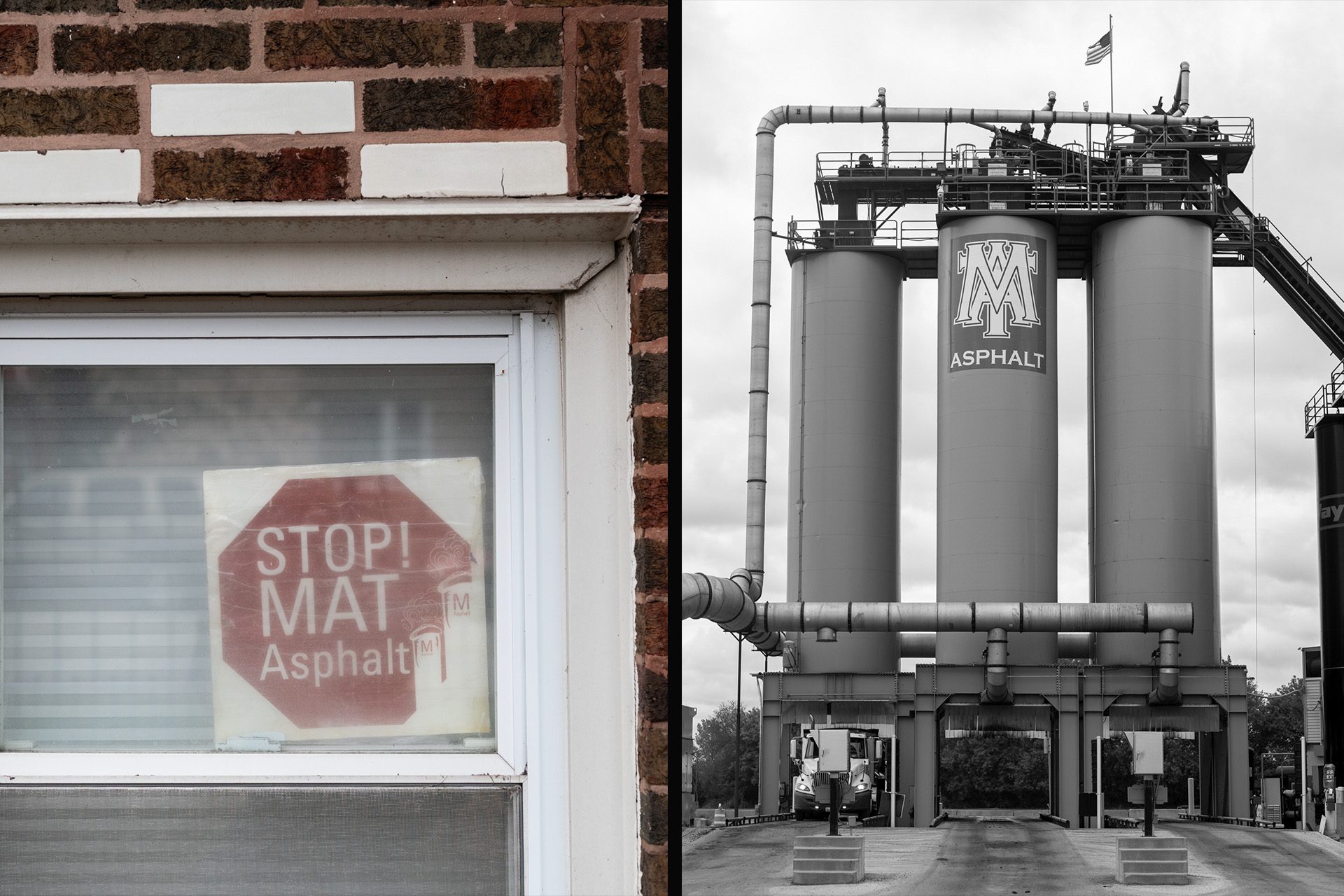 Max Herman/Borderless Magazine
Max Herman/Borderless MagazineAfter hundreds of complaints, citations, and a class-action settlement, city inspectors’ notes show instances where MAT Asphalt continued to generate and emit “strong noxious asphalt odor.”
Since new mitigation technology was installed last year, city inspectors have detected odor and smoke emissions from MAT Asphalt in McKinley Park, records show.
Over the last year, the Chicago Department of Public Health (CDPH) has received more than two dozen air pollution complaints against MAT Asphalt and ticketed the facility for environmental ordinance violations, according to records obtained by Borderless Magazine.
In a handful of instances, inspectors have identified odors escaping from the plant and trucks when loaded with asphalt, a petroleum-based material, according to environmental inspection records.
News that puts power under the spotlight and communities at the center.
Sign up for our free newsletter and get updates twice a week.
The problems aren’t new. Since the asphalt plant moved into the neighborhood seven years ago, residents have filed over 270 air pollution complaints about the plant to CDPH.
Since starting operations in 2018, MAT Asphalt has also received at least 27 environmental citations, according to data obtained by Borderless. The eight-acre site is across the street from a large park and a short walk from schools and homes.
MAT Asphalt typically operates from April to December.
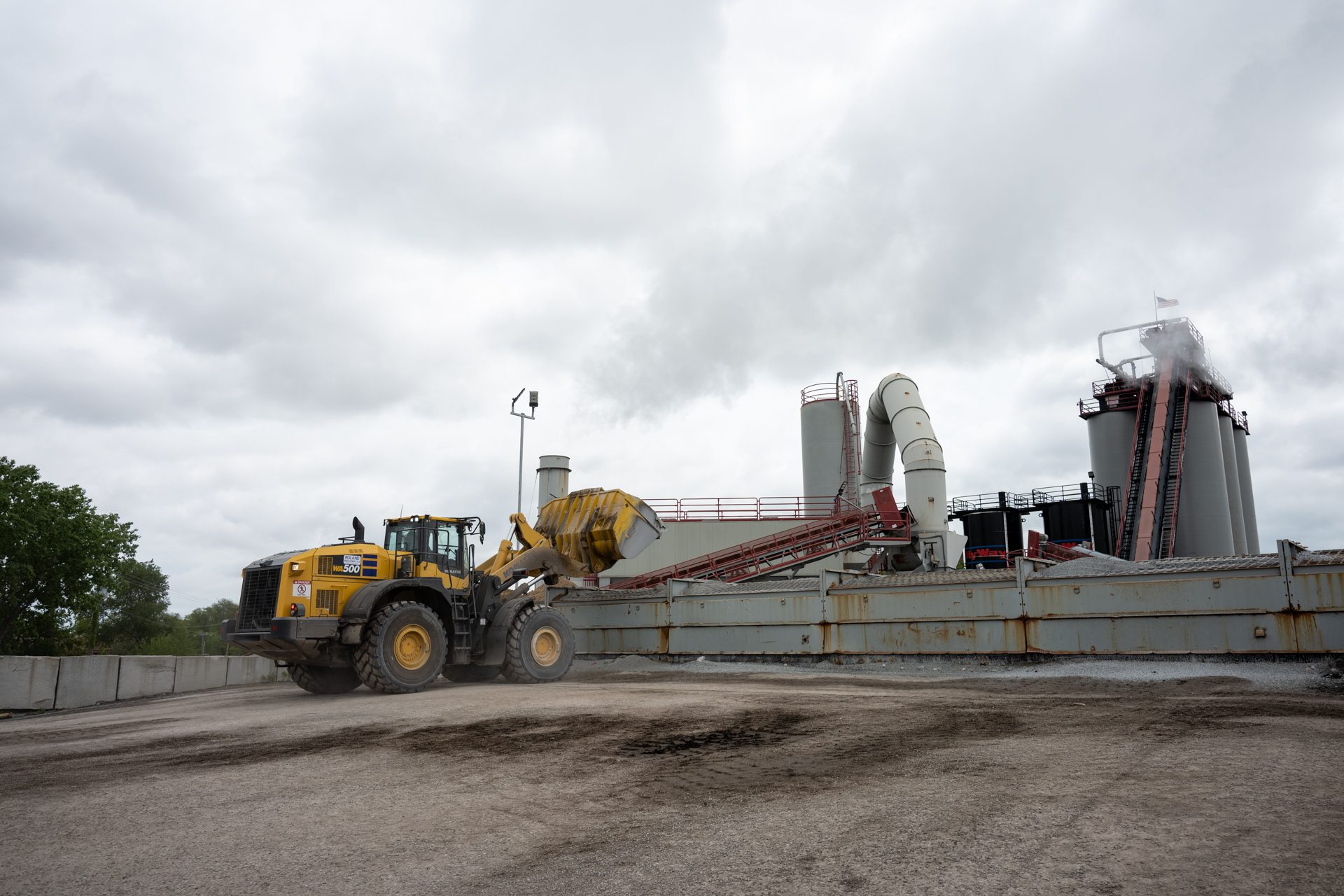
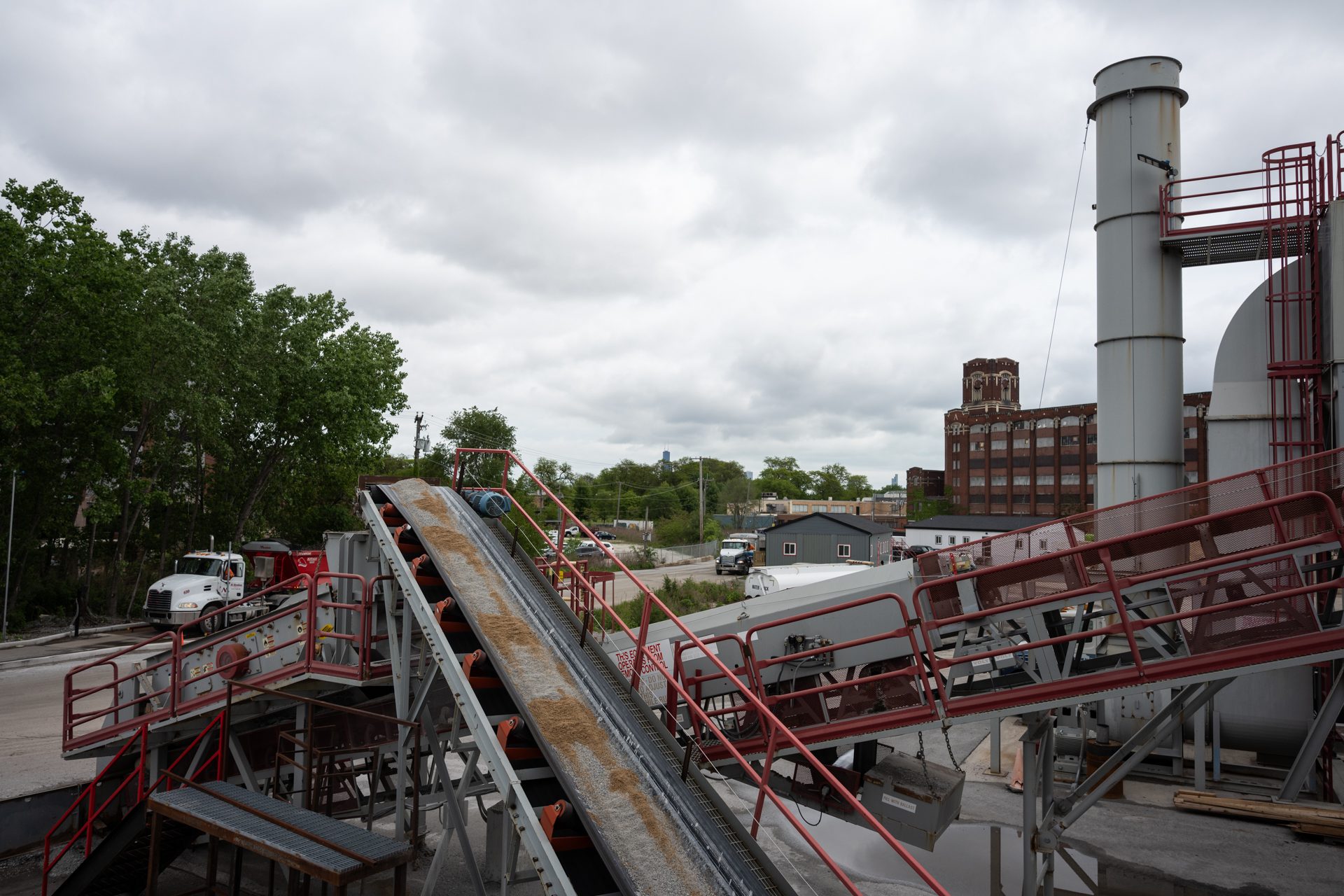
In 2020, McKinley Park residents filed a class action lawsuit, alleging that fumes and odors from the facility created a nuisance for neighbors. The company agreed to pay a $1.2 million settlement and make $900,000 worth of facility upgrades, including installing blue smoke control equipment to capture emissions. The facility upgrades with the blue smoke control device were also required as part of a separate 2023 settlement with CDPH for air pollution citations and dust control violations.
Despite the upgrades, residents have continued to file complaints, and the facility has been cited for environmental violations since May 2024.
“I smell strong asphalt odors in my bedroom and my entire home and neighborhood, causing breathing, headaches and nausea,” a resident complained to CDPH in August 2024, according to inspection records obtained by Borderless Magazine.
In response to the complaint, CDPH inspected the site. The inspection records show that an inspector detected a “strong noxious asphalt odor” near MAT Asphalt that “caused an immediate physical reaction,” including nose irritation and a headache.
The inspector also noted that the blue smoke control device “does not appear to be effectively controlling asphalt odor emissions,” and that MAT Asphalt did not have the required certificate of operation and required air pollution permit to install and operate the device.
In response, CDPH cited MAT Asphalt for violating four environmental regulations:
- keeping air pollution emissions within limits set by state and federal law;
- not causing a nuisance by exposing people to substances that can pose health risks;
- missing a required certificate of operation, and
- not having an air pollution control permit.
CPDH’s environmental inspection data is available in the city’s data portal; however, the agency no longer includes inspector notes in the data, information that was publicly available earlier this year.
CDPH spokesperson Grace Adams said the agency is reviewing its environmental datasets and making changes, including removing inspection notes, or “narratives,” pending further data review “to ensure protection of any potential private information.”
Read More of Our Coverage
City law states that an air pollution violation typically comes with a fine ranging from $1,000 to $5,000. Fines for violating rules requiring a certificate of operation and air control permit range from $250 to $7,500.
The city did not ultimately fine the company for its air pollution citation or for its citation for violating a city rule requiring an air pollution control permit for operating regulated equipment, according to records from the Chicago Department of Administrative Hearings.
The company was only fined by the department $4,500 for violating a city rule requiring a certificate of operation, and $600 for “nuisance in connection with a business” for the August violations.
In a written statement, Adams told Borderless Magazine that CDPH “bears the burden of proof,” and that odors and air pollution can be difficult to prove, especially when invisible.
“Further, to prevail at a hearing at DOAH, CDPH must prove that an alleged violation occurred on the date and at the time specified on the notice of violation,” Adams said. “In this case, CDPH considered the evidence and negotiated an agreement with the respondent to try to achieve the most favorable outcome for the City and the affected community.”
In April, CDPH officials said the agency faced capacity issues in conducting more environmental inspections. CDPH is the city’s main environmental regulator, granting operating permits, conducting inspections and issuing citations for environmental ordinance violations.
During the hearing, CDPH Commissioner Dr. Olusimbo Ige told the City Council’s Committee on Environmental Protection and Energy that the department only had three air inspectors and was looking to fill three vacancies. As of now, the agency has four air inspector positions and two vacant positions.

MAT Asphalt plant manager Joseph Haughey defended the facility, pointing to a 2021 analysis requested by the Illinois Environmental Protection Agency and commissioned by MAT Asphalt. The 800-page study monitored emissions and concentrations of certain compounds from the facility.
He argues that MAT Asphalt is not a chemical plant, does not pose health or environmental threats, and has minimal odors.
“In a way, the McKinley Park neighborhood is lucky,” Haughey said.
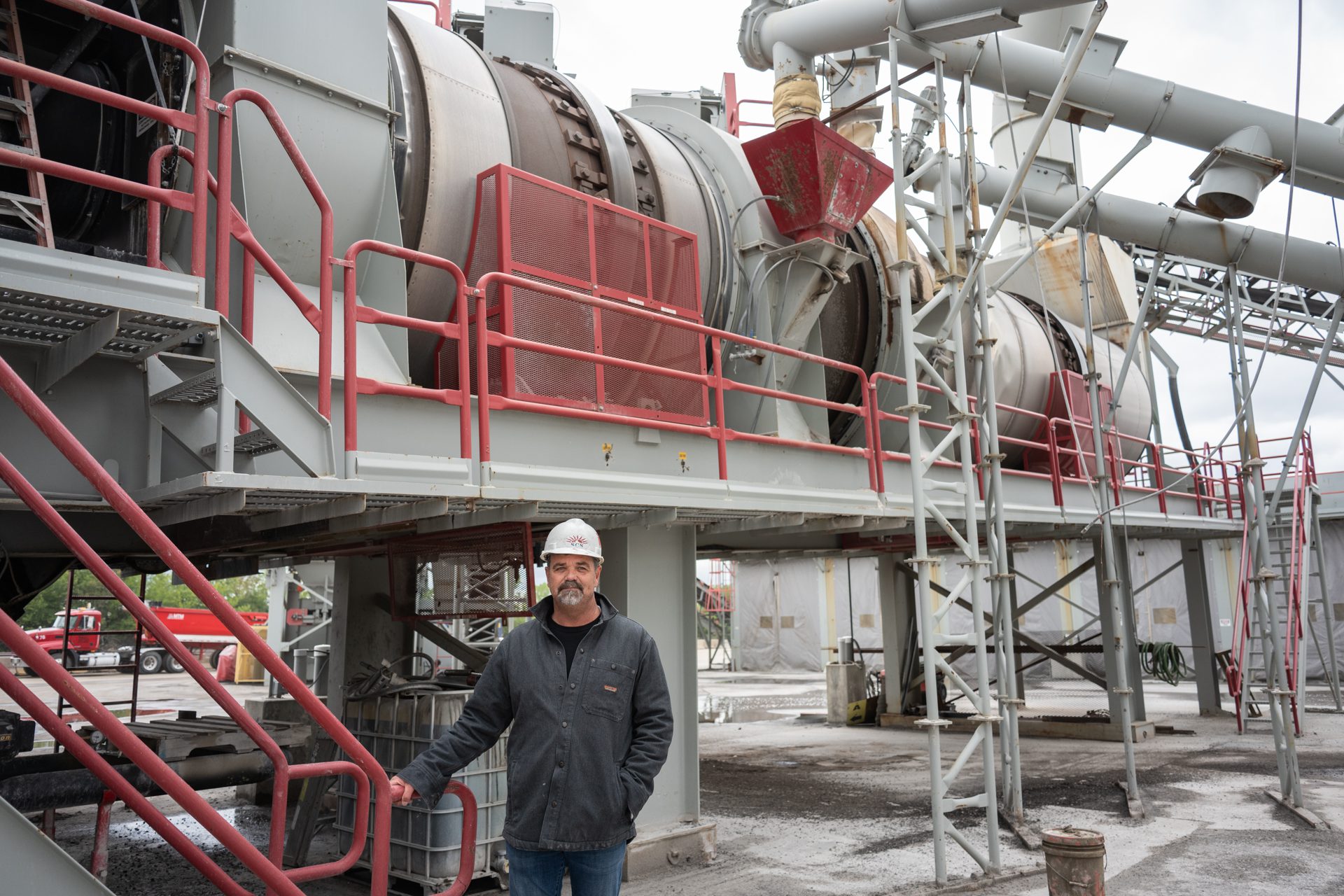
MAT Asphalt, he argued, is only emitting a minimal amount of what is permitted, and that another asphalt plant could emit more and still be within legal limits.
Haughey said nothing more can be done to address complaints against MAT Asphalt.
“I don’t know what more we can do here,” Haughey said. “We make asphalt for the city streets. We’ve gone above and beyond.”
In May, a Borderless Magazine reporter and photographer toured the asphalt plant with Haughey, who pointed out the measures taken to make the plant more environmentally friendly, including the new blue smoke controls, dust control measures, recycling of reclaimed materials and use of odor retardants. The reporter and photographer smelled mild asphalt odors inside the facility, where trucks were being loaded with asphalt.
Michael Cailas, an associate professor of environmental and occupational health sciences at the University of Illinois at Chicago, has studied the cumulative environmental burdens in the Southwest Side. Cailas, who reviewed the report Haughey referenced, said that while the emissions measures were below the allowable limit, the emissions were studied for only two days.
He said a more accurate analysis would be of the health risk assessment within the community, especially with a concentration of industrial plants in Chicago’s Southwest Side.
“It’s not one asphalt plant that might be smelling,” said Cailas. “It might be the combination of eight that produce the smell.”
Cailas cautioned that an odor is not a reliable indicator of high levels of pollutants that can cause health effects if exposed. He said there is limited conclusive evidence that measures the health risks of these compounds emitted from asphalt plants, so it is unknown whether the concentration of chemicals behind what residents might be smelling is dangerous.
Southwest residents constantly face this uncertainty as they smell unpleasant odors in their communities, which are surrounded by industrial zones, he said.
“Why should these communities have this problem?” he said. “Others don’t. You see, it’s a nuisance.”
Some community members still believe it is unsafe for McKinley Park residents, regardless of whether emissions from the facility are within the required limits.
“We do not care if MAT Asphalt is cleaner than other sources of pollution, or if its emissions are less than official limits,” said Anthony Moser, board president of Neighbors For Environmental Justice (N4EJ). “We deserve clean air. We don’t know if the stack test is accurate, but we know everything listed in the report is pollution we were not breathing before they opened,” he said in a written statement.
Continued Frustrations
Frustrated residents like Moser have continued to file complaints of asphalt odors in their neighborhood.
For over two decades, Antonio Ramirez has lived in his McKinley Park home, an eight-minute walk from the asphalt plant. He said he often smells the hot asphalt and can see smoke emitted from the facility when he walks across the park from the plant.
Another resident who asked not to be identified said she can smell it in the mornings when taking her children to the nearby school and sometimes at home when her windows are open.
Brian C., a resident who lives less than half a mile from MAT Asphalt with his wife and two cats, said he has loved living in McKinley Park for 17 years. Now, he sometimes can catch the smell of hot asphalt during his morning walks to the nearby park.
“I wish it wasn’t there,” said Brian. “It would be great if they could [move it].”
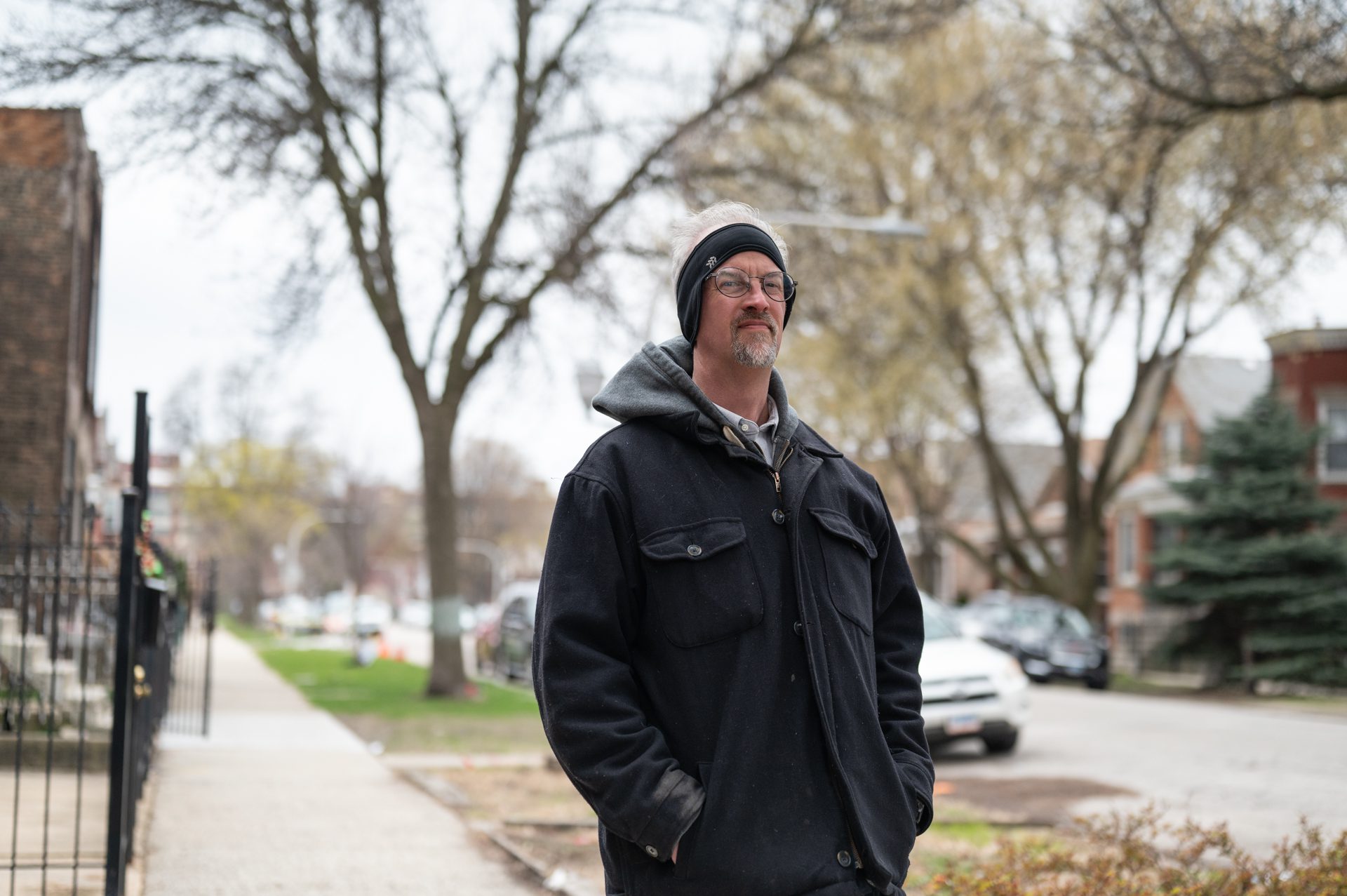
According to complaint records, inspectors have continued to find some complaints valid since the August citations.
About 12 days after the city ticketed MAT Asphalt in August, an inspector responding to a complaint noted in an inspection report that he detected asphalt odors again that caused a headache and irritation in his nose and nose cavity.
The inspector also warned the plant manager, Haughey, about the strong asphalt odors detected, that a citation had already been issued days prior and that “further enforcement action will be taken if the air pollution and nuisance odors are not addressed.” According to publicly available CDPH air inspection data, no tickets were issued that day despite the inspector substantiating the complaint.
Haughey declined to discuss the citations.
“There are many reasons a complaint may have been deemed valid but may not result in a citation, such as the complaint not being covered under the Chicago Municipal Code,” said Adams.
CDPH said they are working on standardizing the recording of environmental inspection data, including codes such as “complaint valid,” for consistency. This includes training inspectors on best practices when entering data and improving the system software “to provide a more transparent outcome from complaints and inspections.”
Kate Eakin, managing director of the McKinley Park Development Council, lives near the facility and said not much has changed over the last year. They continue to hear community complaints about the odors. She sees the facility as a hindrance to future developments in the neighborhood.
“MAT Asphalt continues to be a significant barrier to housing development in McKinley Park, as well as to revitalization of the historic Central Manufacturing District,” said Eakin.
In 2020, the city denied funding for a mixed-use development with affordable housing due to environmental concerns stemming from MAT Asphalt’s location near the proposed development site, the Chicago Sun-Times reported.
“That’s where all the plants in Chicago are,” said Haughey. “We are in an industrial zone. We didn’t change zoning or anything. We’re on the edge of it, but we’re in the [Planned Manufacturing District]. Where we’re at was designed specifically for what we’re doing.”
The asphalt odors can be smelled from within the plant site but not outside, Haughey said. He noted that what residents in the neighborhood might be smelling could be coming from trucks loaded with hot asphalt leaving the facility.
Haughey argued that other plants don’t face nearly as much public scrutiny despite their efforts to address environmental concerns stemming from the plant.
“I am not a big conservative guy saying, ‘I’m here to make money,’” he said, “I’m very much involved with the environmental thing.”
Community Advocacy
In 2018, McKinley Park residents founded N4EJ to prevent the plant from opening and remain committed to stopping MAT Asphalt from operating and emitting pollution in the Southwest Side neighborhood, according to Executive Director Alfredo Romo.
Since word spread that MAT Asphalt would move into McKinley Park, the environmental justice group has vigilantly examined the city’s facility regulations and scrutinized its enforcement practices.
N4EJ criticized the city for lax efforts to protect residents from environmental hazards and for contracting with MAT Asphalt.
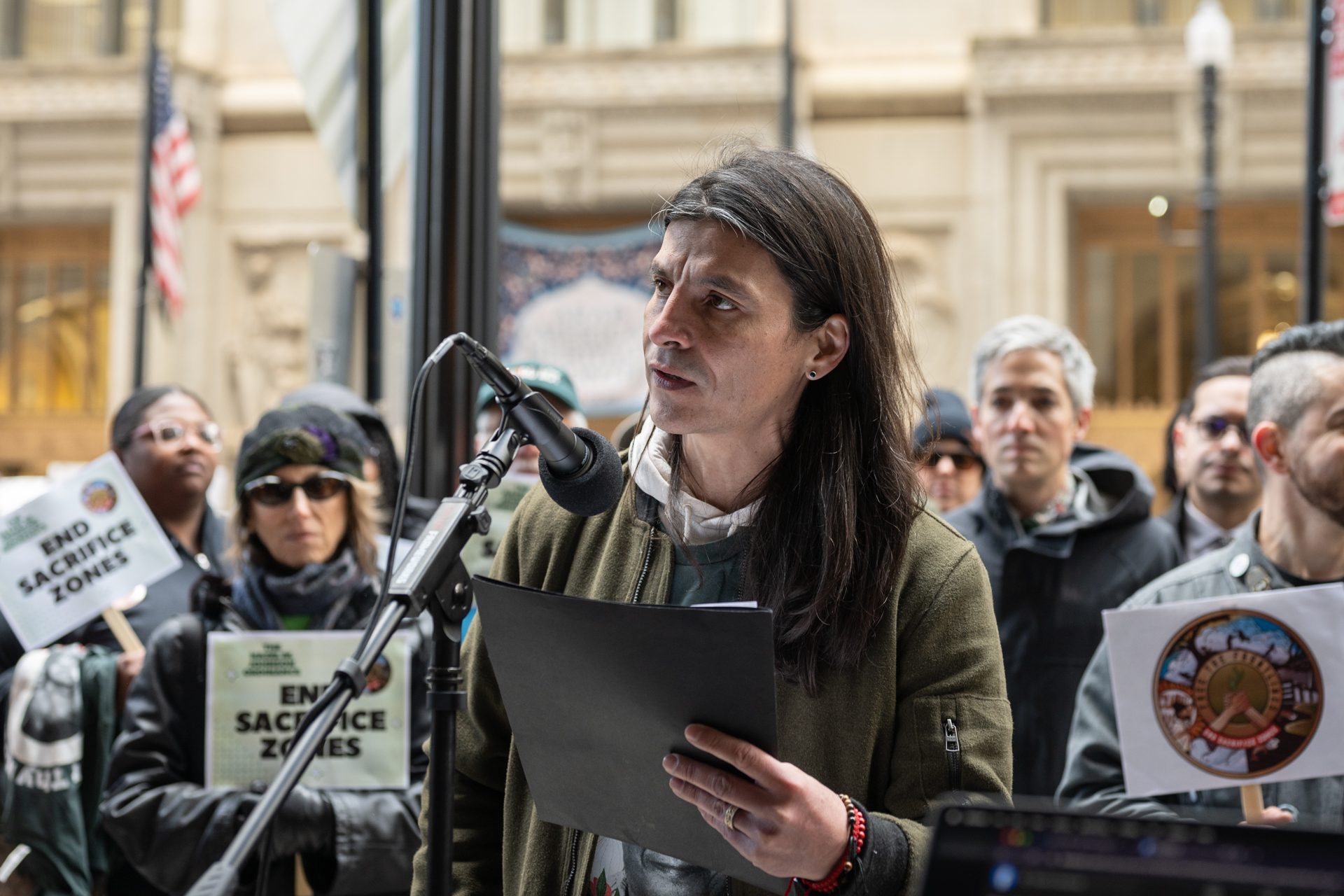
“Our objective has always been about shutting them down, and if we’re not able to shut them down, it’s also about making sure that we’re containing their operations as much as possible,” Romo said.
Despite ongoing complaints from residents and infractions by the company, the city awarded MAT Asphalt $141 million in city contracts in 2023 to provide city crews with asphalt for street work on the same day that it settled an agreement with CDPH to pay fines and make improvements to the factory to limit emissions, Block Club Chicago reported.
McKinley Park Ald. Julia Ramirez (12th) has been critical of the asphalt plant and the city’s enforcement of air pollution violations by businesses in her ward. In 2017, former McKinley Park Ald. George Cardenas supported the plant coming into the neighborhood with minimal community outreach, sparking outrage when the plan was announced.
“If we could make it happen, and if this was an easier fix, I would definitely not want that asphalt in the community,” said Ramirez. “It’s a horrible location. It affects so many of the residents. It’s near the park, near the school.”
Amid ongoing problems with the site, MAT owner Michael Tadin bought the Damen Silos from the state in 2023. The 23-acre property is an unused grain storage structure 1.3 miles north of the MAT Asphalt in an industrial area of the neighborhood. Tadin previously told NBC Chicago he was unsure what the property would be used for, but doesn’t plan on putting an asphalt plant on the site.
The purchase came after environmental advocates and alderpeople, including Ramirez, pushed for the city to acquire the property, seek community feedback on new uses for the area and avoid another heavy industrial facility from coming into the neighborhood.
Moser from N4EJ thinks it is difficult to know how the issue of air pollution in the community from MAT Asphalt can be resolved. Given its proximity to schools and homes, it shouldn’t have been there in the first place, he said.
“Our whole position here from the beginning has been that there’s a fundamental problem with operating a mixed asphalt facility across the street from a park,” said Moser. “What we want to see is that this facility is shut down because it shouldn’t have been allowed to open.”
Aydali Campa is a Report for America corps member and covers environmental justice and immigrant communities for Borderless Magazine. Send her an email at [email protected].


